STUDIES IN ISLAMIC ETHICS (SIE) BOOK SERIES
Volumes
Islamic Ethics and the Genome Question
- 2018
- |
- 1
Islamic Ethics and the Genome Question is one of the very first academic works, which examine the field of genomics from an Islamic perspective. This twelve-chapter volume presents the results from a pioneering seminar held in 2017 at the Research Center for Islamic Legislation & Ethics, College of Islamic Studies, Hamad Bin Khalifa University, in Qatar. The contributors to this volume, coming from different disciplines and specializations, approached the key ethical questions raised by the emerging field of genomics, viz. the Genome Question (GQ), from various angles and perspectives. Their shared thesis is that the breadth and depth of both the GQ and the Islamic tradition necessitate going beyond just producing quick answers in response to immediate questions
Migration and Islamic Ethics: Issues of Residence, Naturalization and Citizenship
- 2019
- |
- 2
Migration and Islamic Ethics, Issues of Residence, Naturalization and Citizenship addresses how Islamic ethical and legal traditions can contribute to current global debates on migration and displacement; how Islamic ethics of muʾakha, ḍiyāfa, ijāra, amān, jiwār, sutra, kafāla, among others, may provide common ethical grounds for a new paradigm of social and political virtues applicable to all humanity, not only Muslims. The present volume more broadly defines the Islamic tradition to cover not only theology but also to encompass ethics, customs and social norms, as well as modern political, humanitarian and rights discourses.
Islamic Ethics and the Trusteeship Paradigm: Taha Abderrahmane’s Philosophy in Comparative Perspectives.
- 2020
- |
- 3
Islamic Ethics and the Trusteeship Paradigm explores the emerging ethical theory of the trusteeship paradigm as developed by the Moroccan philosopher Taha Abderrahmane (b. 1944). The volume, with contributions in English and Arabic, examines the development of this modern Islamic theory of ethics and how it permeates various disciplines: philosophy, theology, legal theory, Sufism, moral theory, sociology and anthropology, communication, environment and biomedical ethics
End-of-Life Care, Dying and Death in the Islamic Moral Tradition
- 2022
- |
- 4
Modern biomedical technologies managed to revolutionise the End-of-Life Care (EoLC) in many aspects. The dying process can now be “engineered” by managing the accompanying physical symptoms or by “prolonging/hastening” death itself. Such interventions questioned and problematised long-established understandings of key moral concepts, such as good life, quality of life, pain, suffering, good death, appropriate death, dying well, etc. This volume examines how multifaceted EoLC moral questions can be addressed from interdisciplinary perspectives within the Islamic tradition.
Ḥadīth and Ethics through the Lens of Interdisciplinarity
- 2022
- |
- 5
This volume addresses the interplay of ḥadīth and ethics and contributes to examining the emerging field of ḥadīth-based ethics. The chapters cover four different sections: noble virtues (makārim al-akhlāq) and virtuous acts (faḍāʾil al-aʿmāl); concepts (adab, taḥbīb, ʿuzla); disciplines (ḥadīth transmission, gender ethics); and individual and key traditions (the ḥadīth of intention, consult your heart, key ḥadīths). The volume concludes with a chronologically ordered annotated bibliography of the key primary sources in the Islamic tradition with relevance to understanding the interplay of ḥadīth and ethics.
Behind the Story: Ethical Readings of Qurʾānic Narratives
- 2024
- |
- 6
Behind the Story: Ethical Readings of Qurʾānic Narratives is a pivotal work that presents groundbreaking research on the Qurʾānic narrative as a literary genre with profound moral significance. It underscores the genre's integral role in shaping Islamic moral thought, as manifested in areas like Islamic law, theology, Sufism, politics, and art. The book offers insightful interpretations of various Qurʾānic narratives, delving into their ethical dimensions and challenges. It also examines their historical reception and influence across both Muslim and non-Muslim scholarship, covering diverse disciplines such as mysticism, art, and applied ethics. This volume stands as an invaluable resource for scholars and students seeking a deeper understanding of the Qurʾānic narrative and its multifarious interpretations in the context of Islamic Studies and beyond.Key Classical Works on Islamic Ethics
- 2025
- |
- 7
This book transcends the narrow philosophical concept of ethics confined to the Greek model, demonstrating that “Islamic ethics” is an interdisciplinary field. It encompasses both theoretical and practical ethics, incorporating disciplines such as Qurʾān, ḥadīth, biography of the Prophet ( sīra), theology ( kalām), jurisprudence ( fiqh), Sufism, and philosophy. The book provides analytical readings of a list of Islamic ethical heritage sources covering a period from the 3rd/9th to the 8th/14th century. It emphasises two ideas: first, the richness and diversity of ethical perspectives within Islamic tradition, showcasing multiple approaches including the Greek philosophical, narrative, and analytical approach belonging to other disciplines beyond philosophy. Second, it challenges the perception of scarcity in ethical sources within Islamic civilization.







